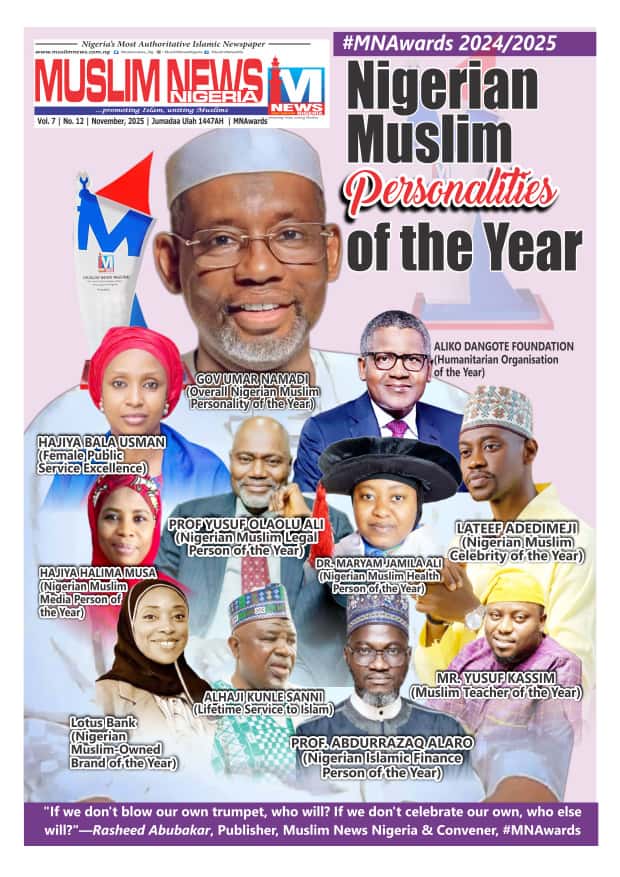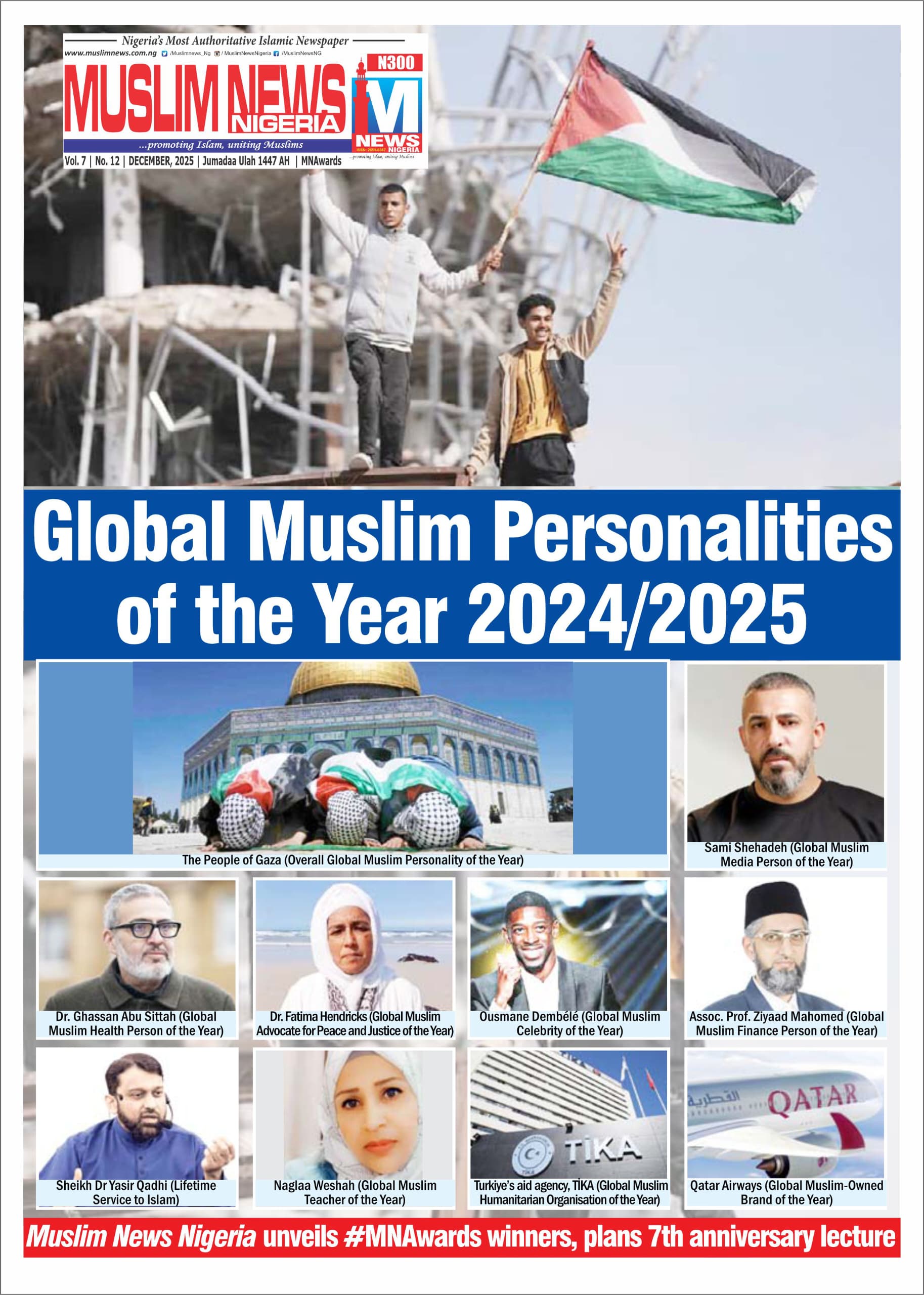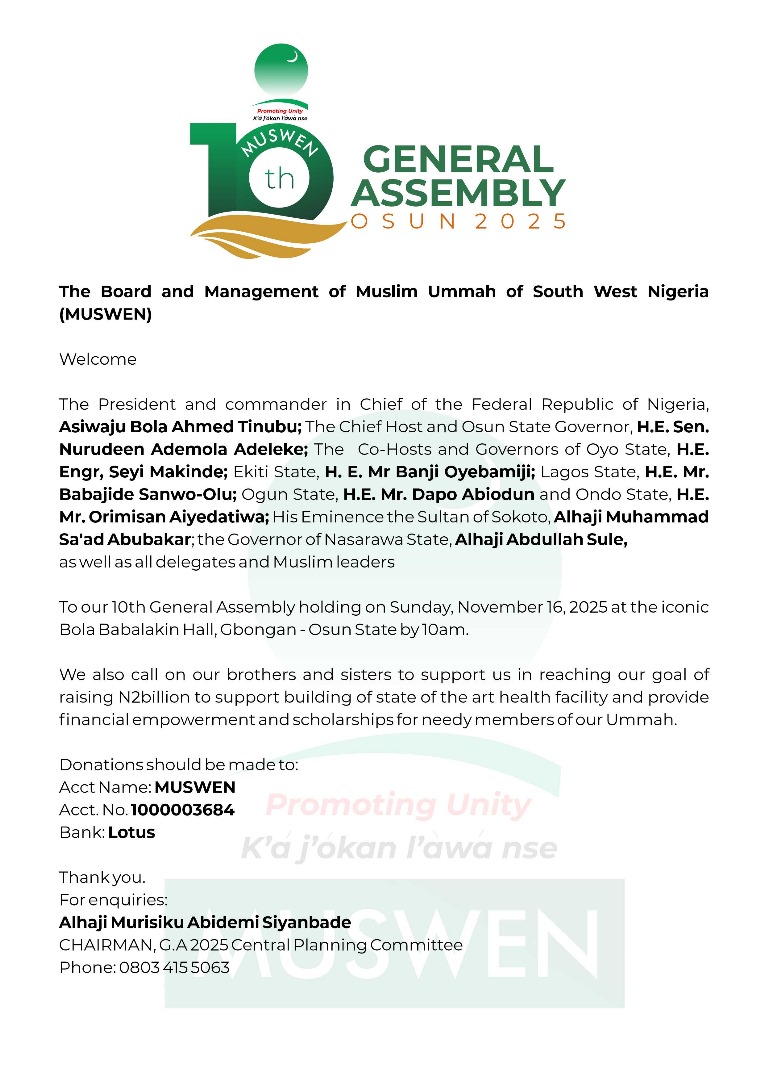By Akeem Alao Babatunde
* Senate Leader accused of sanctioning demolition
* MURIC condemns development, charges Bamidele to rebuild mosques
In a shocking display of religious intolerance, two mosques in Aramoko, Ekiti State, have been demolished within six months, leaving the Muslim community heartbroken and outraged.
The most recent demolition occurred on Wednesday, March 26, when a combined security team, led by the Chairman of Ekiti West Local Government, Hon. Moses Omojola, and his vice, Hon. Isaac Fatoyinbo, stormed the Sabo area of Aramoko Ekiti with a bulldozer and razed a modern mosque being built by the town’s Muslim community.
The Demolition and Its Aftermath
The demolition was allegedly carried out to pave way for a constituency project sponsored by Senate Leader Opeyemi Bamidele.
The move has drawn widespread condemnation from the Muslim community and civil society groups, with many questioning why a house of worship had to be destroyed in the name of development.
The Events Leading Up to the Demolition
According to reliable sources, Hon. Moses Omojola, Hon. Isaac Fatoyinbo, former Deputy Speaker of the Ekiti State House of Assembly Rt. Hon. Gbenga Odebunmi, and Hon. Muyiwa Olabode, later identified as the Secretary of the council, led the security personnel to the site. A bulldozer, which had already been positioned, was ordered into action, and within minutes, the mosque—still under construction—was flattened.
Muslim Community Reaction
The leaders of the mosque, including the Chief Imam of Aramoko, Sheikh Abdulraheem Bamigbola, were caught off guard and stood helplessly as their sacred space was destroyed.
Professor Ishaq Akintola, Executive Director of the Muslim Rights Concern (MURIC), expressed the anguish of the community in a series of strongly worded statements.
“The authorities of Aramoko, Ekiti State, have pulled down two mosques in the town in recent times,” he revealed.
He described the development as “a confirmation of renewed hostility against Yoruba Muslims and a reinvigorated onslaught on the religion of Islam in the region.”
MURIC Scathing Criticism
Professor Akintola did not hold back in his criticism of Senate Leader Opeyemi Bamidele, who was said to have approved the demolition project.
“We are shocked that a politician of immense exposure at the federal level… could give the green light to the perpetration of such a dastardly act against a section of his constituents simply because they are Muslims,” he said.
He further emphasized the emotional and spiritual significance of mosques to Nigerian Muslims: “Nigerian Muslims have special regard for their mosques. It is part of their anatomy and their soul. An attack on one mosque is an attack on all mosques in the country.”
In a deeply emotional tone, he added: “How can Allah give us one thing and you, a homo sapien, take the same thing from us?”
Afenifere’s Controversial Response
The Yoruba socio-cultural group Afenifere stoked the flames of controversy by defending Senate Leader Bamidele and accusing MURIC of incitement. In response, MURIC accused Afenifere of harboring a “pathological bias against Yoruba Muslims” and said the group had once again exposed its anti-Muslim stance.
A Pattern of Mosque Demolitions
The incident in Aramoko is not isolated. MURIC highlighted a disturbing pattern, citing mosque demolitions in Ekiti State in 2005, 2006, and 2012. The organization warned that this could be part of a broader agenda to marginalize and suppress the Muslim identity in the region.
MURIC’s Demands
MURIC is demanding that Senate Leader Bamidele immediately rebuild the demolished mosque and issue a public apology. The group is also calling for an independent investigation into the demolition and for those responsible to be held accountable.
The Way Forward
The demolitions have sparked a national conversation on religious tolerance, minority rights, and political accountability. As tension continues to simmer, the response—or lack thereof—from the Senate Leader and the Ekiti State Government will determine whether this becomes a turning point for interfaith relations or a deepening of the divide.







